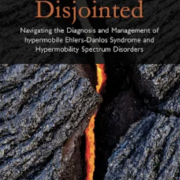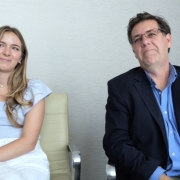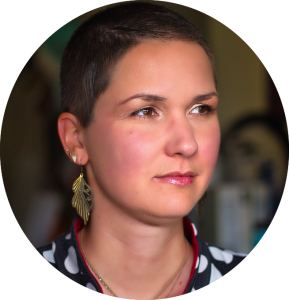Chronic Illness, the bad days & coping
“Wow, I feel like my condition has stabilized a bit. Finally, I can take part in regular life again!” I thought a few weeks ago. Life has been challenging throughout 2020. Actually, challenging isn’t even the right word. It has been a major disaster. When the pandemic started, a lot of past trauma that I had buried deep down hit me all at once. I was barely able to function. I started therapy and became better and better until I actually felt like the best version of myself. I was beginning to live my life again, enjoying it, having fun with friends, and taking care of my physical health more and more.
Just a few days ago, I posted on Insta how I had many ‘good’ days in 2021, and how I hope to be able to continue like this. As you all know, as chronically ill people, we usually don’t do ‘good’ days. We either have bad days or better ones, but no day is ever really good. At least that’s how it often feels to me. There is always something: whether it’s the chronic pain that never goes away or it’s a combination of dozens of other symptoms that come along with EDS. In more than a decade, I have not had one symptom-free day. But then, lately, I thought my physical and mental health had stabilized a bit. I felt centered and focused and believe me, that’s not how anyone would have described me a few months ago. I was ready to jump back into life with all the energy I had.
But… as we all are aware of, our condition can change from one moment to another, and that’s exactly what happened. I said out loud the words, “I am feeling a bit better,” and bam, a punch into my face, or rather a knife in my gut – that’s more accurate – a few hours later, I lie on the floor crying in debilitating back pain that led to severe GI issues for the rest of the night. Consequently, I basically slept on the floor of my bathroom, asking myself why this keeps happening to me.
I don’t know if you can relate to this, but I often feel the second I am a bit more stable and can actually start getting back to some sort of routine, fate is like, “Uhm, nope, Karina. Happiness is really not for you. Please go back to suffering.” Every little activity I participate in has consequences. But I never know what kind of consequences. Sometimes, I do a bit more, and my pain levels slightly increase the next day. That’s fine. I can deal with that. However, another day, I do the exact same thing and am down on my couch for a week after. Why? I didn’t do much yesterday. Was it because I ate something wrong? Was it because this one exercise I did was hurting me? Was it because I did too much over the last week and pushed my body beyond its limit? Or was it just a stupid coincidence, and I have a ‘normal’ illness, like a stomach flu?
I have no clue. And that’s the most frustrating part of it all: Not knowing why I feel this bad. I have all these plans, ideas, projects, but every single time I really begin to live again, I get stopped in my tracks and need to put life on hold f*cking again. I don’t know about you, but I have a really hard time coping with those days. However, I always somehow get through it, and today, I wanted to share my coping strategies with you.
- Journaling. Writing in my journal is my most important coping mechanism. It helps to relieve tension without involving other people. Experts also suggest journaling as a coping strategy.
- Activity. I love to be in nature, so whenever I feel anxious (and my body allows), I go on hikes or walks, or spend time on my paddleboard or kayak. Exercise is known to reduce stress and anxiety.
- Meditation and Tai Chi. Meditation helps me with anxiety, stress and pain; Tai Chi is a nice distraction from my thoughts. Studies suggest that meditation reduces anxiety, and Tai Chi can lower stress and anxiety levels and improves the mood.
- Volunteering. Volunteering in a nursing home was such an enriching experience for me. Studies suggest reducing the unhappiness of others contributes to making us happier.
- Peer support. Keeping busy while helping others is one of the best ways for me to cope with EDS and all challenges. Sharing my knowledge and supporting people at the beginning of their journey with EDS also helps me to see how far I have come. Peer support was found to be helpful for many conditions, including mental health conditions.
- Constant learning. Knowledge is power. Knowing as much as I can about EDS helps me to keep a sense of control over my condition, and learning why my body behaves in a certain way makes it easier to cope with symptoms; they feel less threatening with increased knowledge.
- Therapy and Breathing. One of the best steps for me was having a therapist supporting me with all my everyday struggles. Literature suggests CBT might be helpful to cope with chronic illness as well.
- Having a voice. In the past, I often didn’t feel heard. Especially with doctors, I felt like I didn’t have a voice. Today, I share my experiences with chronic illness in my blog and on my social media profiles, which gives me a sense of purpose and makes me feel visible!
- Loud Heavy Metal. Listening to loud music, maybe singing along, makes happy!
So, I survived another shit day. I somehow always do, even if it does not feel that way while the full force of a bad day hits me. It will take some time to recover from it – unfortunately, having a good day means it is over after 24 hours while one bad day usually never comes alone… – and I remain hopeful that at least, the number of good versus bad days stays balanced and hey, at least bad days lead to a lot of good writing. Well, I let you judge the latter one.
I would love to hear how you cope, especially with those crappy days. Maybe together we find a way to turn bad days into semi-OKish days.













Karina, this was beautifully said. As I write this comment, I sit on top of my “made bed, restless, but resting on this sunny July Sunday afternoon. And I desperately resent my body’s need to rest, instead of Doing Things I’d Planned To Do. But I have learned to respect my body when she says No. (“No” means “no” and all that…)
Being on top of my bed is a crucial distinction to me, because being IN bed is the most intolerable form of inactivity, reminding me of the very darkest of days in my journey with chronic illness. But still. Being tolerable is not enough: I want more from my life! How I miss the “before” days. (I bet you can relate…)
Thanks for sharing your thoughts, lovely prose, and excellent coping tips.
Looks like our toolkits are pretty similar. ;)
~Wishing you many Better Days,
Rebecca
Hi Rebecca, thanks for the kind words. I certainly can relate a lot to missing the before days, but I also try not to look back too much because there are really great days in my life right now too – just in a different way. Wishing you all the best! Karina